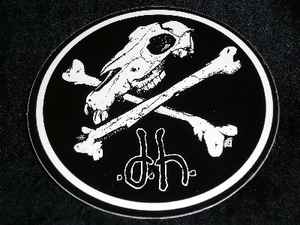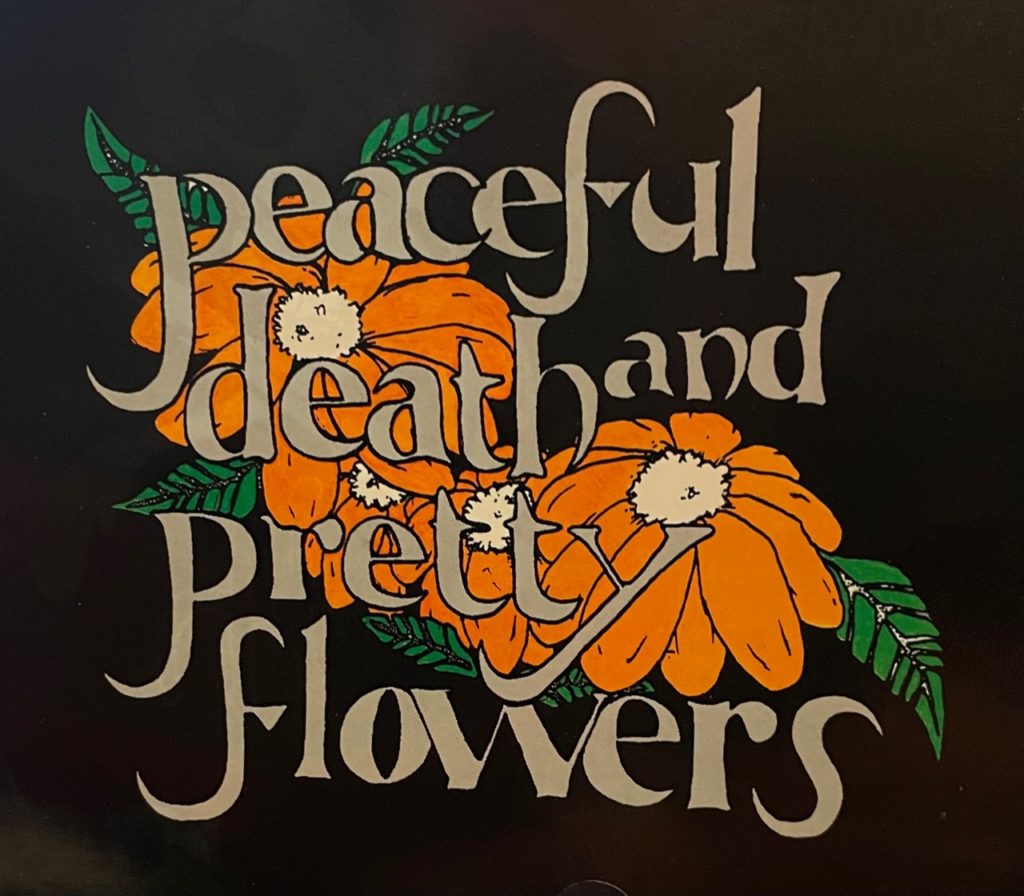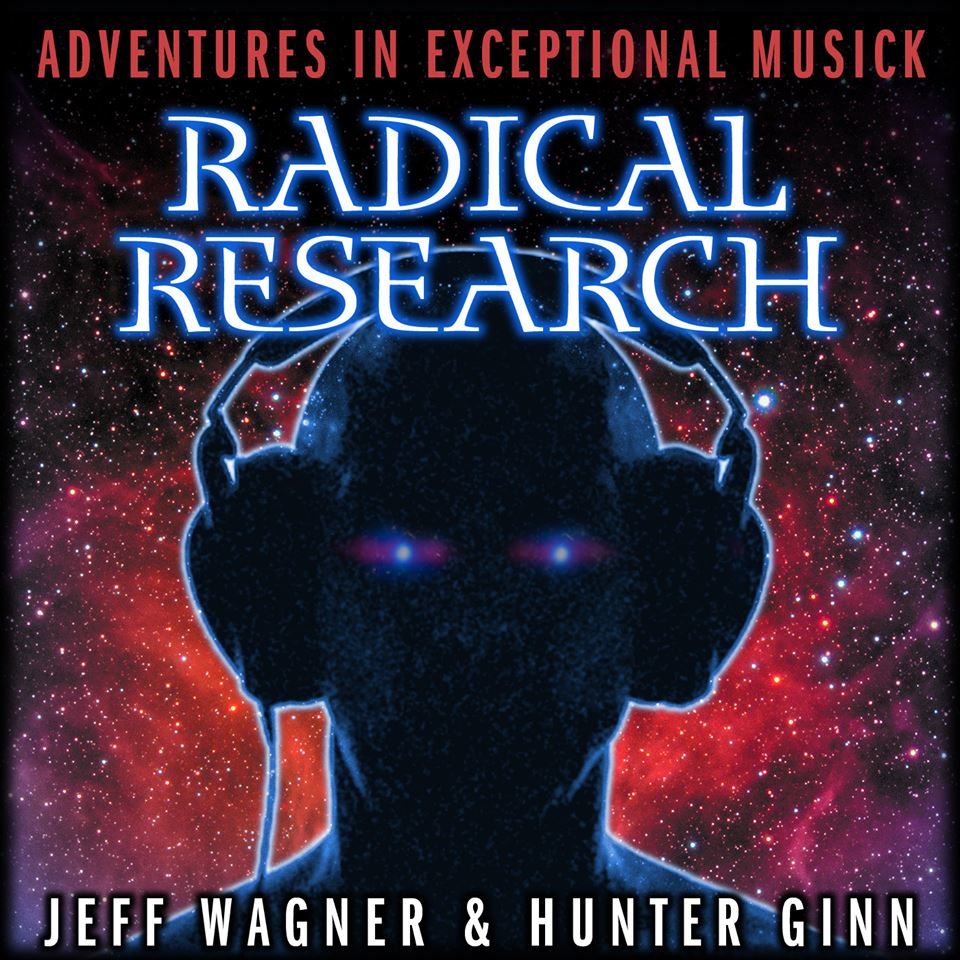
13 Nov BLOGCORE: RELATED DEAD HORSE TRIVIA THAT’S TIME CONSUMING
As supplement to Radical Research #103, on Dead Horse’s Peaceful Death and Pretty Flowers album, we present a variety of impressions gathered by the inimitable Forrest Pitts aka Fallow Heart. These impressions come from Randy Haaga, Michael Haaga and Sean “Pellethead” Pelletier, and were originally obtained for the Decibel Hall of Fame piece that Forrest scribed for that publication. These recollections have not seen the light of day until Forrest granted them to Radical Research. [The Radical Research hosts have never liked spelling band names all lower case, even if the band insists on it. Please excuse us for spelling the band’s name as Dead Horse here. You’ll get over it.]
Randy Haaga (original Dead Horse manager/booking agent and brother of Michael Haaga)
[On the band’s influences]
Mike [Haaga] was not a metal fan (at least not a fan of the current metal at that time). He loved The Cure and The Smiths. He was more of a Beatles fan than a Metallica fan.
As for the band’s influences: early on (after having finally graduated from ”Seek and Destroy” era Metallica) I think S.O.D. was the primary role-model. S.O.D. was loud, fast, silly, anti-rock star and sublime (you could also sprinkle in some influence from Slayer, Fear, the first Motley Crue album, Brit Pop/Punk and the Young Ones).
[On the choice to cover the B-52’s “Rock Lobster”]
Maybe that cover wasn’t such a weird choice at the time. It always seemed that ten out of ten people loved it and (kinda sadly) it remains the band’s most streamed track. Now all these years later, I understand that Mike [felt] that being into metal meant that you had to be too cool to dance, too cool to smile or to really have fun in some cases. Life for early 20s, late teens in the scene we inhabited was kinda bleak and if you think about it, most of that life-style took place in bars; the music was just a bonus for many of the regulars. My point is that Mike and Dead Horse chose to do a danceable song for all of those cooler than cool people living in their dark bars with their dark music when the dance of the day belonged to the mosh pit. Joining in for the newcomer was always a dare, a rite of passage (and actually very dangerous). You would probably get hurt but most people would try it at least once. Mike at least subconsciously realized that he could fuel that feeling if he provided the right soundtrack to help young people to find the guts to throw caution to the wind. A band that can harness that could become something more than a shitty local DIY thing and become part of those forever memories. “Rock Lobster” was a great tool for that.
[On the album’s cover art]
The art used for Peaceful Death… is Michael’s original art. Their label Big Chief did pay to have another artist redraw a similar image and we thought that that was the dumbest idea a record label could have. Michael’s artwork was on the band shirts and stickers and those were selling as good as anything else. If you went to an arena show in Houston at that time you’d see as many Dead Horse shirts as Metallica ones. Mike’s art was the fifth member of the band and having the label try to improve on that really showed that we had the wrong label. It just caused delay and tension but all that probably eventually helped the band secure all rights to the album as Big Chief folded. By the way, the album title was altered. The original title was Peaceful Death and Pretty Flowers, Vomitous Horse Choruses.
[On the prevalence of humor in Dead Horse’s music]
No band wants to be a joke band and doing those odd songs like “Rock Lobster” or “Aplo” do kinda push you into joke territory. But to us, it seemed like the intensity of
the other songs evened everything out. Admittedly, that might not have translated as well on the album if you never saw the band perform live. A DH show was normally a spectacular thing with levity, intensity and easy-to-appreciate music. There was also less of that fake machismo and a more relatable sense of humanity. The live show had a lot to offer.
[Randy Haaga’s Track by track breakdown of Peaceful Death and Pretty Flowers]
Cod Piece Face – Oh yeah, we loved Godflesh and The Young Ones.
Turn – I used to like the demo better… I feel kinda responsible for the rather thin, shallow guitar sound (my least favorite [quality of] the album, but I love the song).
La La Song – Mike could make anything into a metal song.
Like Asrielle – Asrielle was the actual name of Greg’s [Martin/guitarist] pet tarantula and (to my mind) the story of Mike’s soon to be ex-girlfriend. Some of Mike’s best and most personal lyrics and one of his best vocal performances. I used to consider this my favorite track.
The Latent Stage – The unofficial band endurance test. If ever there was a reason to
question speed for the sake of speed, it’s here. This may be one that Mike completed the lyrics for in the studio so he would’ve had the least preparation on the vocals and I think that’s apparent, but it didn’t take anything away from the intensity.
Peaceful Death – I finally made it to a record! The entire band plus me and Kerry Crafton are heard speaking in the “million voices of hell” part. It’s got a meaningless lyric (“lee-all”) but packs the most accessible song structure of the album and I think that’s how it became the title track.
Eulogy – “Hup…” and a bit of country guitar leading into my favorite Mike lyric: “and the roaches can live without heads.” You don’t get more metal than that. Mike asked Bliss Blood from the Pain Teens to come to Dallas and record the voice of a girl laughing for a part in this track. Little secret: the voice used is from a sound effect tape because it sounded more like our idea of Bliss Blood than she actually did! (Maybe I shouldn’t have told you that?)
Snowdogs – It’s my understanding that this track didn’t age well with other members of the band (meaning, those who are not Mike) and I thinks that just because it’s an actual love song and kind of points to sexuality and that just not cool in thrash/death Metal. It was always a great pace change for the live show and Mike could really belt out these lyrics. It’s part of a great album and I love it.
The Lark Nest – This is easily the showstopper for the live show. The build-up at the end of this track was kind of the pay-off for the whole show.
Medulla Oblongata – One of Mike’s songs. In my memory, he wrote this in full without the rest of the band. Kinda punk, kinda up-beat for such a blunt song. It’s fun.
Aplo – This got old for me quick.
Rock Lobster – A sea of humanity in the pit. Nothing says ‘I love this band!’ like a little blood.
Sawbone – Again I get to be on the record – It’s incredibly fun to see people sing along to this at a live show.

Michael Haaga (vocalist, guitarist, lyricist, co songwriter and visual artist)
[On how the argument regarding Dead Horse’s band name was finally ‘saddled’.]
After going quite a while without a proper name we were forced to decide as we looked to book our first show. I recall that one temporary band name was Brain Dead which stuck for a short while but I think we all agreed that it was wrong for us; I know I didn’t like it. Anyway, I often picked up Greg [Martin] for practice. So, one night, I’m driving Greg to rehearsal and he and I are doing the whole band name thing (“let’s call the band this. No, let’s call the band that…”). Back in the day, Fairmont Parkway was full of fields of horses and open land. So, we’re saying to each other, “let’s call the band ‘dead this’ or ‘dead that’ and Greg says ‘dead horse’.” I thought it had a great ring to it and hey, we’re from Texas! Oddly enough, Greg was not as gung-ho as I was, even though he’s the one that came up with it. Whatever. I brought it up to the guys when we got to rehearsal and then later on to Randy [Haaga]. Allen hated it. Randy hated it. Ronnie [Guyoute/Drummer] and Greg didn’t think anything one way or the other but at least they didn’t hate it. Well, we got a show booked at a club called Backstage without having a solid name yet. Pantera was also playing that night (still in their spandex phase). As the gig gets closer, we have to commit. I fought for the name. Randy and Allen were steadfast against it but I got enough agreement from Ronny and Greg that we ultimately went with Dead Horse right before the gig. I think at this point we’re playing a few covers: “Jesus Saves” from Slayer, something from S.O.D., and those Misfits tracks from the Metallica $5.98 EP, plus a handful of our own songs. We had to convince Allen not to wear his spandex or poof his hair and I speak with an English accent between songs, because that’s what I do when I’m nervous on stage at seventeen, it turns out. Ultimately, Dead Horse played its first early-as-shit opening show to practically no one except for the guy that booked us. He liked the show and gave us lots of props. We kept the name. Ha!
[On the choice of Kerry Crafton as Peaceful Death and Pretty Flowers engineer/producer over other names discussed at the time, including Scott Burns and Terry Date]
I believe that the final decision [to go with Kerry] was influenced mostly by a SXSW show at the Austin Pavilion at which Kerry Crafton mixed the band live. I vaguely remember hanging out after the gig and talking about it. It was a great show and a great mix. Kerry of course would end up recording/engineering Peaceful Death… He also had experience mixing metal coming from the rich thrash scene in Dallas like Rigor Mortis. Kerry had a crude sense of humor that meshed with the band. He was a bit of big hillbilly and he definitely understood abrasive music. Ultimately, I think recording in Texas was a good idea and I can’t tell you whether, if we’d recorded with Scott Burns, if “Sawbone” would’ve been nearly as funny: Kerry and Randy and the rest of Dead Horse, except for myself, all did the screams on that track. Kerry’s voice left the guys cracking up! His is the most high-pitched, prevalent scream throughout. Besides moving the knobs on the board, I only recall one particular ‘production’ move regarding the music. He had me harmonize a lead part at the beginning of “Aplo.” He also threw a great effect onto my voice at the end of the song “Peaceful Death” during those ad libbed ravings and rantings which really put it over the top. (Okay, he also suggested that I sing the lyric ‘we’re after the same thing’ every other time in the second chorus whereas I’d not planned to repeat it. I think that that had a nice effect.) All that being said, the record was finished in several days, including the mixing. All the takes are live with very minimal overdubs.
I don’t know what the differences of recording with Kerry in Dallas, Texas over Scott Burns in Florida would’ve been. I have no regrets because it’s better to regret something you have done than to regret something that you haven’t done. And by the way, if you see
your mom this weekend, tell her, “Satan, Satan, Satan,” for me. [we have spotted the Butthole Surfers reference, nice one! – RR]
[On the lore behind the track “Aplo” and the legendary boondoggles of bassist Allen “Alpo” Price]
The song “Aplo” grew over time. I think it started with the second riff of the song just being something we played when we wanted to tease Allen (that menacing, ‘here’s comes trouble’ theme that I can’t tell you the true origin of but I know we didn’t write it. [It’s lifted from “The Imperial March” by John Williams, FH]). I wrote the lyrics for “Aplo” in the back of the van driving around Dallas just the day before we recorded it. Allen’s own actions over the years made that one kinda easy. He had rolled and puked in sinks across the nation and he did get sent over the edge after smoking grass if he was already fucked up drunk. We did drink 40-ouncers of Colt 45. We did call Allen “The Pope” (which was another nickname based off Alpo). He did disappear sometimes e.g., “where is The Pope?”
I should also explain why the song’s titled “Aplo” instead of “Alpo”. That’s because when we were at a Taco Bell in Austin, Texas, Allen (for whatever reason) wrote the word ‘APLO’ on his Converse sneakers in sharpie, (instead of ‘ALPO’ like he meant to do). AP on one shoe, LO on the other. And I mean, right on the white parts on top of the Converse where you couldn’t possibly miss it! Too fucking funny! Granted, he was probably stoned but it was monumentally Allen and thus APLO was born. (I don’t think the inside joke carried over. People never sang the word ‘aplo’ when we played it live, they always sang, ‘alpo’, even though that wasn’t the lyric…)
[On other covers in Dead Horse’s repertoire besides “Rock Lobster”]
We often played parts of The Cure’s “Boys Don’t Cry” and Michael Jackson’s “Beat It” live. We fully covered Led Zeppelin’s “Communication Breakdown” and Black Sabbath’s “Paranoid.” We also played “Into the Void” and “Children of the Grave” for a two-day event with loads of bands called Sabbathon. Some of the footage is up on Youtube. https://youtu.be/Qm_3ySqgkCE?si=2GYQuMrQh2jOT8E0

Sean “Pellet” Pelletier on Dead Horse:
This certainly is one of the most important records of my entire life.
The nerdy clerk at Musicland wearing the Dangerous Toys “Sporting A Woody” shirt told me not to buy it so I did. The puzzling artwork looked like something my acid-eating friend had sketched on his desk during Saturday detention and I couldn’t look away. Each time I took a gander, I
understood something different about it. And once I got home, I couldn’t stop listening. The music kept unfolding in front of me, and inside of me even when I was away from the boombox. There was something deep, personal, very different and everlasting about this album. Although I seemed to be the only one in my small town in Maine who knew of this band, it’s what Max Cavalera and I had in common. We were tuned in and turned inside out by this brilliant anomaly.
Peaceful Death… was unique enough to become its own heavy metal sub genre. It was released at a time when thrash had become boring and stagnant. It was a broken bone bridge between thrash and death and a wholly original defection, evolution and celebration of heavy metal. These songs are the most glorious passing of thrash in the most beautiful of ways. A stellar death knell oozing adrenaline and dark humor. Haaga’s lyrics were memorable, thought provoking, clever and ours. There was absolutely nothing like this album.
Its very true that Dead Horse were a very talented unit before Haaga. A metal band who, like a lot of Texas bands at the time, were also great live but it is Haaga who set them apart. Dead Horse were a page without a poet and Michael Haaga was their Jim Morrison. His lyrics, phrasing, charisma and artwork allowed this album to become a supersonic pioneer. A true mastercraft of art, music and words.
The beauty of Peaceful Death… was that it wasn’t so extreme as to be alienating. Live and on album, their music was all-encompassing, infectious fun without having to involve the Teenage Mutant Ninja Turtles. It was an energetic escape for the intellectual, the activist, the psychologist, the anarchist and the unstoppable mosher. Knowing that there was a Peaceful Death and Pretty Flowers poster up at the Relapse office was one of the reasons they were the only record label that I wanted to become part of. Matt Jacobson and I bonded over this band and it was a stunning thrill to have been able to assist in the reissue of this album. Michael Haaga stands to this day as one of the most unheralded true geniuses in metal. A man this complex and magnificent stands a good chance to never be fullyunderstood or appreciated and unfortunately, to this very day, Peaceful Death and Pretty Flowers remains one of the most criminally underappreciated albums of all time.As hard as I worked at radio to promote this album, and a decade later as a promo person at Relapse Records, I still don’t feel like it’s found its full audience. I haven’t given up hope though.

